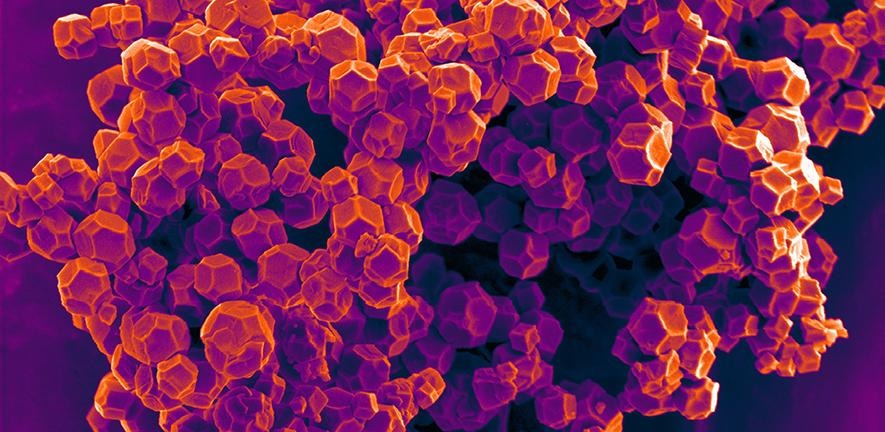May 16 2019
It is possible to use machine learning to estimate the characteristics of a class of materials which, according to some researchers, can be as significant to the 21st century as plastics were to the 20th era.
 Crystalline metal–organic framework (Image credit: David Fairen-Jimenez)
Crystalline metal–organic framework (Image credit: David Fairen-Jimenez)
Machine learning methods have been used by researchers to precisely predict the mechanical characteristics of metal-organic frameworks, or MOFs, which can be used for storing toxic gases, or extracting water from the air in the desert, or powering hydrogen-based cars.
The scientists, headed by the University of Cambridge, applied their machine learning algorithm to estimate the characteristics of over 3000 prevalent MOFs, and also MOFs that are yet to be produced in the laboratory.
Reported in the inaugural edition of the Cell Press journal Matter, the study results can possibly be used to accelerate the way materials are defined and engineered at the molecular scale.
The self-assembling 3D compounds—MOFs—are composed of organic and metallic atoms that are linked together. Similar to plastics, MOFs are extremely versatile and can be modified into a countless number of varied combinations. Plastics are based on extended chains of polymers growing in just a single direction. By contrast, MOFs have well-ordered crystalline structures growing in all directions.
Such a crystalline structure makes it possible to develop MOFs like building blocks—individual molecules or atoms can be easily switched in or out of the structure, that is, a level of accuracy that otherwise cannot be achieved with plastics.
The structures have a large surface area and are highly porous—for example, if a MOF the size of one sugar cube is laid flat, it would enclose a space the size of six football fields. However, somewhat counterintuitively, MOFs serve as highly effective storage devices. Within any specified MOF, the pores can be tailored to form a flawlessly shaped storage pocket for varied molecules, by simply modifying the building blocks.
That MOFs are so porous makes them highly adaptable for all kinds of different applications, but at the same time their porous nature makes them highly fragile.
Dr David Fairen-Jimenez, Department of Chemical Engineering and Biotechnology, University of Cambridge
Dr Fairen-Jimenez headed the study.
MOFs are generally produced in powder form, but to make this powder suitable for practical proposes, it is put under pressure and made into bigger shaped pellets. Since MOFs are highly porous, most of them are crushed in this process that wastes both cost and time
In order to resolve this issue, Fairen-Jimenez and his collaborators from the United States and Belgium created a novel machine learning algorithm to estimate the mechanical characteristics of a countless number of MOFs. This way, only those MOFs that have the required mechanical stability can be produced.
A multi-level computational method was used by the researchers to construct an interactive map of the mechanical and structural landscape of MOFs. Initially, high-throughput molecular simulations were utilized by the team for 3,385 MOFs, and then a freely-available machine learning algorithm was developed to automatically estimate the mechanical characteristics of prevalent and yet-to-be-manufactured MOFs.
We are now able to explain the landscape for all the materials at the same time. This way, we can predict what the best material would be for a given task.
Dr David Fairen-Jimenez, Department of Chemical Engineering and Biotechnology, University of Cambridge
An interactive website has now been launched by the team, where researchers can engineer and estimate the performance of their own MOFs. According to Fairen-Jimenez, the tool will aid in bridging the gap between computationalists and experimentalists working in this field. “It allows researchers to access the tools they need in order to work with these materials: it simplifies the questions they need to ask,” he stated.
The study was partly funded by the European Research Council and the Royal Society.